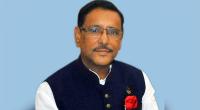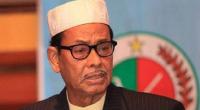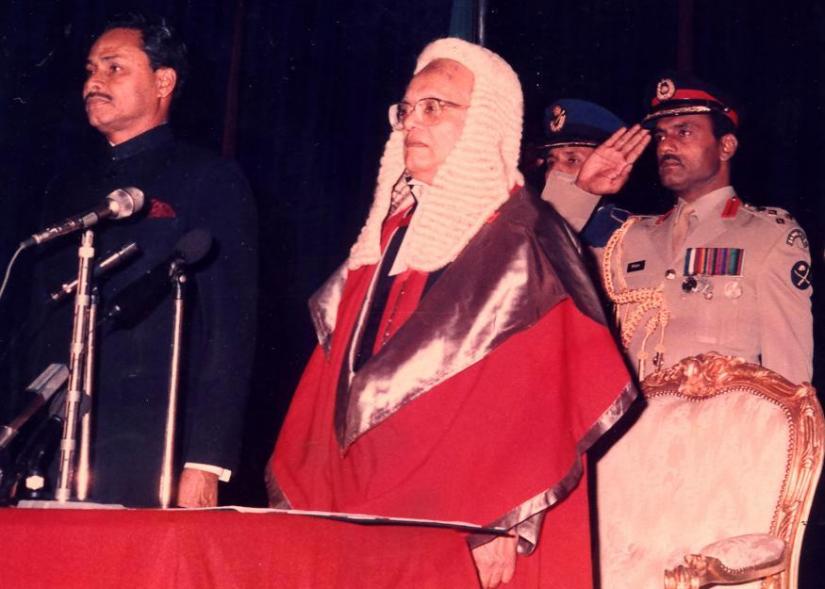 In India, the death of Bangladesh’s former military dictator HM Ershad has evoked a generally balanced reaction.
In India, the death of Bangladesh’s former military dictator HM Ershad has evoked a generally balanced reaction.
S Jaishanker, a former career diplomat, who is currently India’s foreign minister, expressing official condolences, recalled his efforts to improve bilateral ties and mentioned the reforms in domestic governance that he sought to achieve in Bangladesh.
Political analysts based in Kolkata and Delhi referred at some length to the bitter-sweet legacy that the Ershad has left in the sphere of bilateral relations.
During his fairly long tenure of eight years and eight months as the ruler of Bangladesh (1982-90), the military strongman adopted measures that often soured relations and generated a measure of mutual distrust. This happened mostly during the initial part of his tenure.
The hardliner Hindu lobby and allied outfits reacted bitterly to his move to declare Islam as the state religion of the young Bangladeshi nation. His decision to promote the use of Arabic as a compulsory language for elementary level students did not improve matters either.
Over the years, however, there was a gradual convergence of views between the two countries, as leaders made state visits and got down to discuss specific issues. These included Ganges water sharing, planning joint flood control measures, maintaining peace and order at the border, tackling insurgency among others.
There was a gradual appreciation in Delhi that as a young Muslim-majority country, it was important for Bangladesh to achieve greater acceptance within the larger world Islamic community. 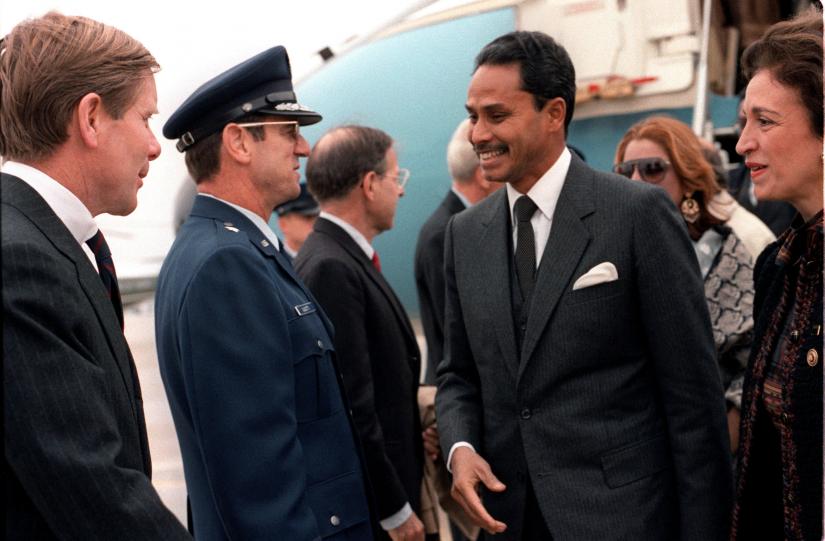 Ershad’s emphasis at home on private sector development rather than strengthening state sector economy won him support from the West. He took a major step in further cementing ties with the Western countries, some of which were still not reconciled with the break-up of their all weather ally Pakistan, by announcing Dhaka’s support for the joint US/EU operation against President Saddam Hussein of Iraq.
Ershad’s emphasis at home on private sector development rather than strengthening state sector economy won him support from the West. He took a major step in further cementing ties with the Western countries, some of which were still not reconciled with the break-up of their all weather ally Pakistan, by announcing Dhaka’s support for the joint US/EU operation against President Saddam Hussein of Iraq.
In the specific context of Indo-Bangla relations, senior journalist Subir Bhaumik says that over the long haul, Ershad’s impact had been more positive than otherwise.
“He remains, to my knowledge the only ex-military officer in the world who took over as the chief martial law administrator, suspending the Constitution, to assume power and yet could ensure his political longevity and relevance, functioning as a full time politician who till the last day of his life retained the support of his native constituents in northern Bangladesh.
“The Jatiya Party he led managed to win more or less 10 percent of the seats in the national elections. It certainly plays a decisive role in the event of a close contest between the Awami League (AL) and the Bangladesh Nationalist Party (BNP). He could make his own space within the political spectrum even after serving a long jail time for his misdemeanours and the sustained hostility of the BNP and the AL, which led to his ouster and decline. Like him or hate him, you just could not ignore him.”
The veteran journalist gives him the credit for appreciating that as a political head of Bangladesh, he could sense that ruling his country could be much easier by securing the co-operation of its nearest neighbour, India, than by adopting a consistently confrontational posture.
Not everyone agrees. VN Khanna, author and researcher, in a recent article about Indo-Bangladesh relations during the years 1975-90, attaches greater importance than Bhaumik to the early part of Ershad’s regime as the leader of the country.
Referring to the spell of military rule in Bangladesh, he states, “Military rule damaged mutual relations, as the Constitution in Bangladesh was reframed, as major principles of the earlier Constitution were deleted, apparently to legitimacy internationally and at home.”
The Bangladeshi army dominated by the officers and soldiers returning from Pakistan at that stage, played a major role in ensuring that India was kept at a distance. Elements within the armed forces also acted at times at the behest of the Pak-based intelligence agency ISI, when it came to targeting secular forces at home and Indian interests in the neighbourhood, according to him.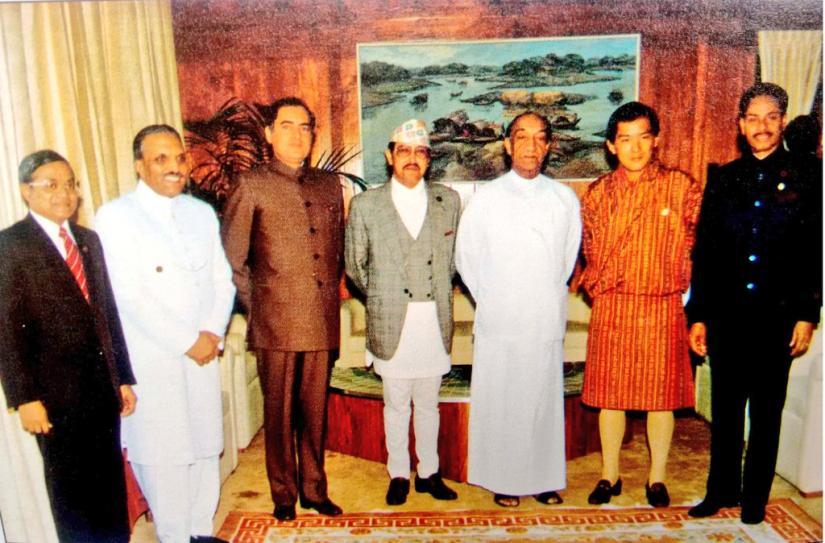 The anti-Indian feeling was also marked within the army because of other developments at the time. Almost 60 percent of the army was, at one stage, involved in tackling the armed insurgency in parts of the Chittagong hill tracts. The usual war cry of the Pakistani army is ‘Allahu Akbar’ and it was no different with many soldiers in the Bangladeshi army at the time. Some Bangladeshi political leaders and administrative heads were critical of India’s role in the insurgency. Their resentment percolated down to the army ranks at all level, writes Jeremie Codron, another specialist on Bangladesh issues, in his article in a journal.
The anti-Indian feeling was also marked within the army because of other developments at the time. Almost 60 percent of the army was, at one stage, involved in tackling the armed insurgency in parts of the Chittagong hill tracts. The usual war cry of the Pakistani army is ‘Allahu Akbar’ and it was no different with many soldiers in the Bangladeshi army at the time. Some Bangladeshi political leaders and administrative heads were critical of India’s role in the insurgency. Their resentment percolated down to the army ranks at all level, writes Jeremie Codron, another specialist on Bangladesh issues, in his article in a journal.
Veteran Kolkata-based observer Sukharanjan Dasgupta feels that on the whole, Ershad’s role in the evolution of healthy bilateral ties between India and Bangladesh has to be appreciated even by Indian hardliners.
He urges critics of Ershad, especially in India, who accuse him of subverting democracy for personal gains, acts of corruption, rigging and manipulation in elections, politicising the army etc, to keep in mind that as the leader of a relatively young country, Ershad had faced hard choices.
“I remember his plain speaking even as a diplomat … ‘We must do something for our people and we do not have much time.’ I recall him telling us Indian journalists on one occasion. ‘We have to root out much corruption and economic backwardness; we must catch up with other countries’… He may have had his faults, but I do not think he spoke insincerely, on that occasion”, says Dasgupta.
Others felt that while Ershad had failed in his efforts to militarise, as it were, some aspects of administration in Bangladesh, in the name of improving order and efficiency, he did bring in some stability within the army.
By the end of his tenure, the army had been ‘stabilised’ to the point that it was content to serve under a civil administration, as it should be in functioning democracies.
Ershad had once told a New York Times interviewer that he wished to ensure that “There would be no more coups, in Bangladesh, not next year, not in the next ten years”. If the present situation in Bangladesh seems more favourable for democratic forces to operate freely, some of the credit should go to him for the steps he tried to take.
It was through his efforts again, that in trying to set up the SAARC as a powerful regional grouping, he had managed to bring together in Dhaka top leaders from India and Pakistan—Rajiv Gandhi and Zia ul Haque. 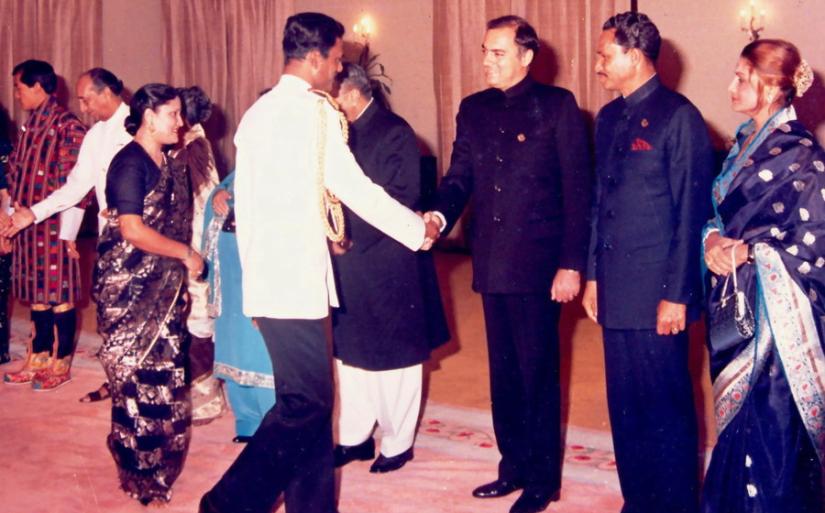 Gandhi had also visited the cyclone-hit people of Bangladesh on one occasion. As India’s then foreign minister PV Narasimha Rao had arranged for an emergency supply of 100,000 tonnes of food grains for Bangladesh at a time of shortage, after a conversation with Ershad.
Gandhi had also visited the cyclone-hit people of Bangladesh on one occasion. As India’s then foreign minister PV Narasimha Rao had arranged for an emergency supply of 100,000 tonnes of food grains for Bangladesh at a time of shortage, after a conversation with Ershad.
Some of his efforts, seeking to set up Joint Economic Commission, Joint River Commission, the mechanism for a land boundary agreement, a new Ganges water-sharing agreement between India and Bangladesh, did not make much progress during his tenure.
But later dispensations in both countries have given concrete shape to and implemented some of the proposals, such as the Ganges water sharing issue and the Land Boundary agreement.
“These are no mean achievements notched up through the efforts of a Bangladeshi leader whom many Indian leaders and officials had dismissed as a pro-Pakistan army officer who took no part in the fight for freedom in Bangladesh,” says one observer.
 Politics
Politics
41363 hour(s) 34 minute(s) ago ;
Morning 06:28 ; Sunday ; Jul 06, 2025
Ershad’s death: View from India
Send
Ashis Biswas, Kolkata
Published : 07:30, Jul 15, 2019 | Updated : 07:30, Jul 15, 2019
Published : 07:30, Jul 15, 2019 | Updated : 07:30, Jul 15, 2019
0 ...0 ...
/hb/
Topics: Top Stories
- KOICA donates medical supplies to BSMMU
- 5 more flights to take back British nationals to London
- Covid19: Rajarbagh, Mohammadpur worst affected
- Momen joins UN solidarity song over COVID-19 combat
- Covid-19: OIC to hold special meeting
- WFP begins food distribution in Cox’s Bazar
- WFP begins food distribution in Cox’s Bazar
- 290 return home to Australia
- Third charter flight for US citizens to return home
- Dhaka proposes to postpone D8 Summit
Unauthorized use of news, image, information, etc published by Bangla Tribune is punishable by copyright law. Appropriate legal steps will be taken by the management against any person or body that infringes those laws.
Bangla Tribune is one of the most revered online newspapers in Bangladesh, due to its reputation of neutral coverage and incisive analysis.
F R Tower, 8/C Panthapath, Shukrabad, Dhaka-1207 | Phone: 58151324; 58151326, Fax: 58151329 | Mob: 01730794527, 01730794528

